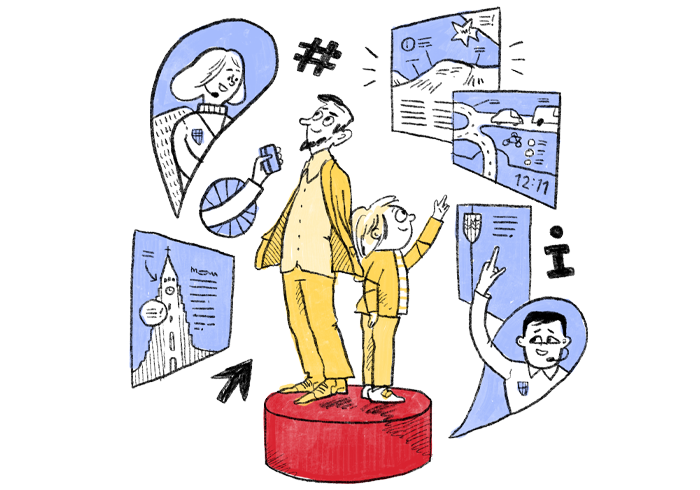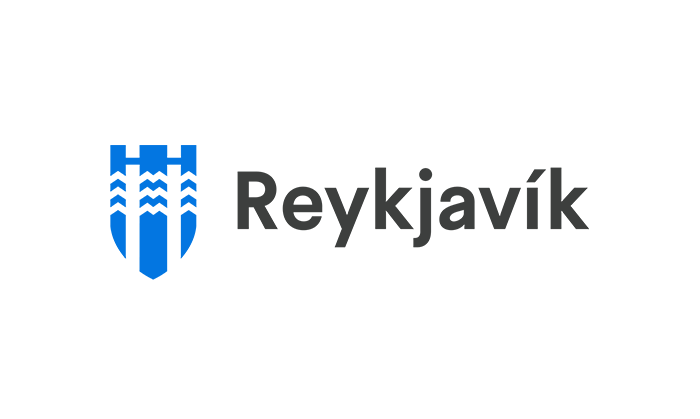Sex education – materials for staff

Ideas for teaching materials, icebreakers, and instructional guides as well as other informative content for staff of primary schools and recreation centers.
Education
Here is a toolkit containing education resources, theses, surveys, and reports that can be used for sex education in primary schools.

Videos and websites
Here is a toolkit including videos, websites, TV shows, cartoons, and podcasts that can be used for sex education at the primary school level.

Books and pamphlets that are useful for sex education
Gender-based violence and schools This book guides school administrators and staff on prevention, response and resolution of gender-based violence issues.
Sexual behavior of children/what is normal?
A pamphlet designed for parents and staff to distinguish between normal and abnormal sexual behavior in children. The pamphlet includes aspects to consider when monitoring the sexual behavior of children from preschool age to ten years old. Publisher: Barnahús
Information brochure from Stígamót
A pamphlet about sexual violence and Stígamót's services available in many languages.
Parent-child communication about sex
A pamphlet issued by the Directorate of Health encouraging parents and guardians to talk to their children about sex. It's a smart move to send the pamphlet home to parents and also beneficial for teachers to understand the importance of discussing sex with children and adolescents.
Glossary of terms
Clarifications on everything related to sexual health and sex. The pamphlet is available in English and Swedish and is very accessible. A clever idea might be to select words and terms from the list, place them in a bowl, and have each student (or group) draw a word/term, translate it, and then present it to the rest of the class/group. Students can be encouraged to draw the word, incorporate it into a poem or story, or any other activity that comes to mind for teachers or students. Also, for example, choosing one word a week from the pamphlet to explain and discuss with students could be useful.
Erfið spjöll (Difficult Conversations) is a handbook developed by the Gender Equality Academy for Department of Education & Youth staff on how to respond when a child or young person reports violence.
What now? A booklet from Reykjavík's Gender Equality Academy created to support parents and guardians of children and young people who have experienced sexual abuse or harassment.
What now? - for printing - A document optimized for print. Best printed double-sided with mirroring along the short edge.
What now? - Document better suited for digital reading.
One step at a time. A booklet from Reykjavík's Gender Equality Academy created to support immediate families of children and young people who have experienced sexual abuse or harassment. Also helpful for parents if their child has been exposed to abuse because it covers warning signs that sexual abuse has occurred and how to respond to such situations.
One step at a time - for printing - A document optimized for print. Best printed double-sided with mirroring along the short edge.
Eitt skref í einu (One step at a time) - Document better suited for digital reading.
Talking About Sex
This book contains everything related to the sexual health of children and adolescents. The book is exceptionally well structured for the different ages of the audience being educated each time.
The little book about menstruation. This book covers everything about the menstrual cycle and periods. Schools could keep a copy for students to browse and learn from.
It is recommended to offer a variety of teaching methods
- Group work/presentations
- Use post-it notes, for instance, in brainstorming sessions.
- Slide presentations
- Slido.com or menti.com - allows for the submission of anonymous questions, word clouds, and more.
- Use magazines, movies, shows, and social media - discuss, for example, media pressure to always be sexy, ready for everything, and that everything is so great, unrealistic, and even harmful.
- Videos / show videos / allow students to create videos
- Drawings - have students draw, embroider, build or sculpt genitals. Emphasize the diversity of genital appearance.
- Allow students to create content online - such as Q&As or write brief articles, blogs, or other materials.
- Have an idea box / question box
- Use a word / concept jar, clarify basic terms and words well. Students can draw from a jar. Examples of words could be: intercourse, foreplay, caresses, masturbation, intimacy. Afterward, they can seek out information, discuss together, and then explain to others or write it down and hang it on the wall.
- Allow students to create pamphlets, a website, or a podcast.
- Debates - select a topic and exchange views on it, for instance, about pubic hair, pornography consumption, or condom use.
- Conduct interviews, for example with parents or grandparents about their first love or heartache, puberty, or the sex education they received in their time.
- Engage in games
- 'Café conversations' - taboo sessions. Here, anonymous questions can be used.
- Work with dilemma scenarios
- Introduce various projects and campaigns, e.g. #VikaSex (Week6) and ‘Sick Love’.
- Thoroughly introduce resources such as the emergency number 112, gynecologists, Dermatology and Venereology Department, healthcare, the Red Cross Helpline, emergency reception for sexual assault victims in Fossvogur, Stígamót (for those over 18, but younger individuals can avail of their online help), Child Protection, and more.
From the adolescent workshop in Dec 2023. Messages from teenagers to adults regarding sex education
- Teachers need more education to teach this better
- More time, more education, start earlier
- Real talk isn't “scary“, it's important
- No question is too silly (preparing teachers for tough questions)
- Would you rather we learn sex education from pornography or at school?
- We want sex education classes every week
- Stop making everything embarrassing
- Education prevents violence/sexual violence
- Many kids have started having sex and we need education
- Have a question box that can be answered
- Pornography consumption is more than you think
- Talk more about sexual health
- Educate parents as well. Just them, not with their children
- Provide more education on LGBT+ sex
- Eliminate the shame surrounding sex education
What do you want to explore next?
- Staff toolkit - gender education Toolkit with education materials, websites, reports and checklists related to gender equality.
- Staff Toolkit - LGBT+ education Toolkit with education materials, websites, reports and checklists related to LGBT+ education.
- LGBT+ children and schools Here is a page with various ways schools can become LGBT+ friendly.